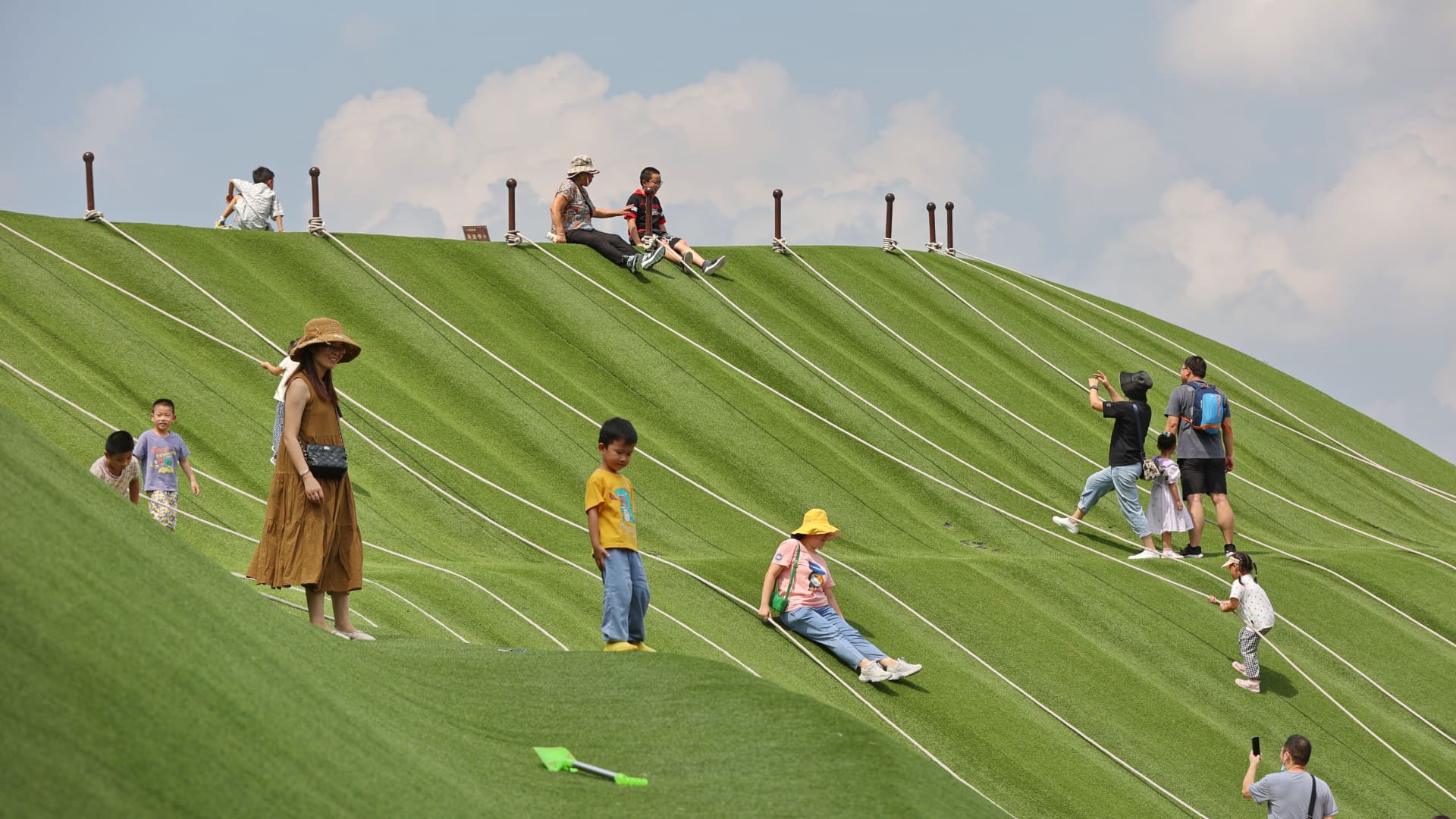BEIJING — China’s tourism sector ended yet another public holiday with revenue well below what it was before the pandemic hit.
National tourism revenue for the three-day Mid-Autumn Festival reached 28.68 billion yuan ($4.16 billion) — just 60.6% of the 2019 pre-pandemic levels, the Ministry of Culture and Tourism said late Monday. The figure also marked a 22.8% decline from last year.
Tourist trips of 73.4 million were nearly 17% below last year’s figure, and had only recovered to 72.6% of 2019 levels, the ministry said.
The tourism figures dropped more than they did during the last public holiday in early June, pointed out Ting Lu, chief China economist at Nomura.
“The worsening business activity was mainly due to the tightened Covid control measures, as individuals have been advised to stay local and avoid unnecessary trips during the Mid-Autumn Festival and National Day holiday (1-7 October),” he said in a report dated Monday. China’s next public holiday will be in October.
Chinese tourism has slumped since the pandemic hit in early 2020. Domestic tourism revenue for all of last year was about half of what it was in 2019, according to the tourism ministry.
This year, figures for the first six months showed a drop of about 28% from the same period in 2021. And since Shanghai’s two-month lockdown ended in June, China has battled outbreaks across the country, including in the resort island of Hainan.
The Mid-Autumn Festival this year officially landed on Saturday, with the public holiday running through Monday.
Even if people didn’t travel far, they weren’t inclined to go to movie theaters. The long-weekend box office came in at 370 million yuan ($53.44 million), the lowest since 2017, according to data from movie ticketing site Maoyan.
The number of movie theater visits — about 9.2 million — was the lowest since 2013, despite more than triple the number of movie showings, the data showed.
Online shopping: a bright spot
However, online shopping held up, at least in terms of volume.
China’s postal authority said it handled nearly 1.8 billion packages during the holiday, similar to last year. The 2021 figures were well over 90% of 2019 levels, according to an official report. A 2019 comparison wasn’t released this year.
Last week, China’s National Health Commission encouraged people to stay put during the holidays and avoid holding large group events.
The commission emphasized that when moving between provinces, travelers need to show negative virus tests taken within the last 48 hours — as has been the general practice for at least some areas. The health authority said this Covid policy would last until Oct. 31, with subsequent adjustments as needed.
The capital of Beijing, which is set to host a historic political meeting next month, has reported in the last several days infections tied to two universities and a middle school in the city. Business and social activity in the city remain largely unaffected.
However, due to a local Covid infection tied to Beijing, a town in the neighboring province of Hebei said that starting Tuesday, it would essentially lock down for four days, according to state media.
This month, the southwestern city of Chengdu — known for its panda center — ordered people to stay home while authorities conducted mass virus testing. Restrictions began to loosen in the last few days, but restaurants still cannot let people dine in, according to the city government.
A government meeting during the holiday
On Monday, while the public was still celebrating the Mid-Autumn Festival, China’s Premier Li Keqiang headed a special meeting about the economy, according to state media. All four of China’s vice premiers attended, the report said.
National economic growth has slowed — to a pace of 2.5% in the first half of the year and well below the official target of around 5.5%.
Adding to the drag from Covid controls is a slump in China’s massive real estate market. Last week, trade data for August indicated that as global demand wanes, exports would likely not support domestic growth as much as they previously did.
China is due to release August retail sales, industrial production and investment data on Friday.
